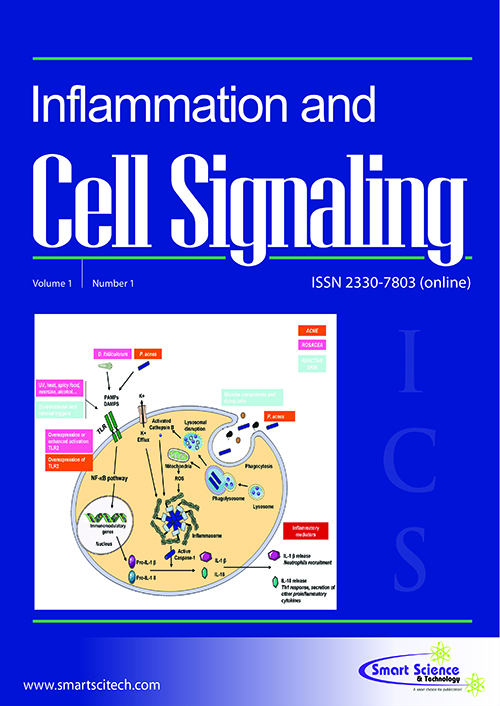Intermediate-conductance Ca2+-activated K+ channel KCa3.1 and its related molecules in T-lymphocytes
DOI: 10.14800/ics.327
Abstract
The intermediate-conductance Ca2+-activated K+ channel KCa3.1 (also called IKCa, IK1 and KCNN4) plays an essential role for the positive-feedback mechanism required for the enhancement of Ca2+ signaling in activated T-lymphocytes, and regulates the T cell activation, proliferation and differentiation. Recent reports have suggested that T-lymphocyte KCa3.1 K+ channel is an attractive target for the therapeutic strategies of inflammatory bowel disease (IBD). In addition, the potential KCa3.1 regulators also play critical roles in the T cell functions: phosphoinositide-3-kinase, class 2, beta polypeptide (PI3K-C2B), nucleoside diphosphate kinase B (NDPK-B), phosphohistidine phosphatase 1 (PHPT-1) and myotubularin related protein 6 (MTMR-6). We recently described that the up-regulation of KCa3.1 and NDPK-B might constitute an initiation step in CD4+ T-lymphocyte proliferation in acute IBD and might be one of important mechanisms underlying the pathogenesis of IBD (Ohya et al., Am J Physiol Gastrointest Liver Physiol. 306:G873-G885). KCa3.1 K+ channel and its regulators may be potential therapeutic targets for inflammatory diseases such as IBD.














